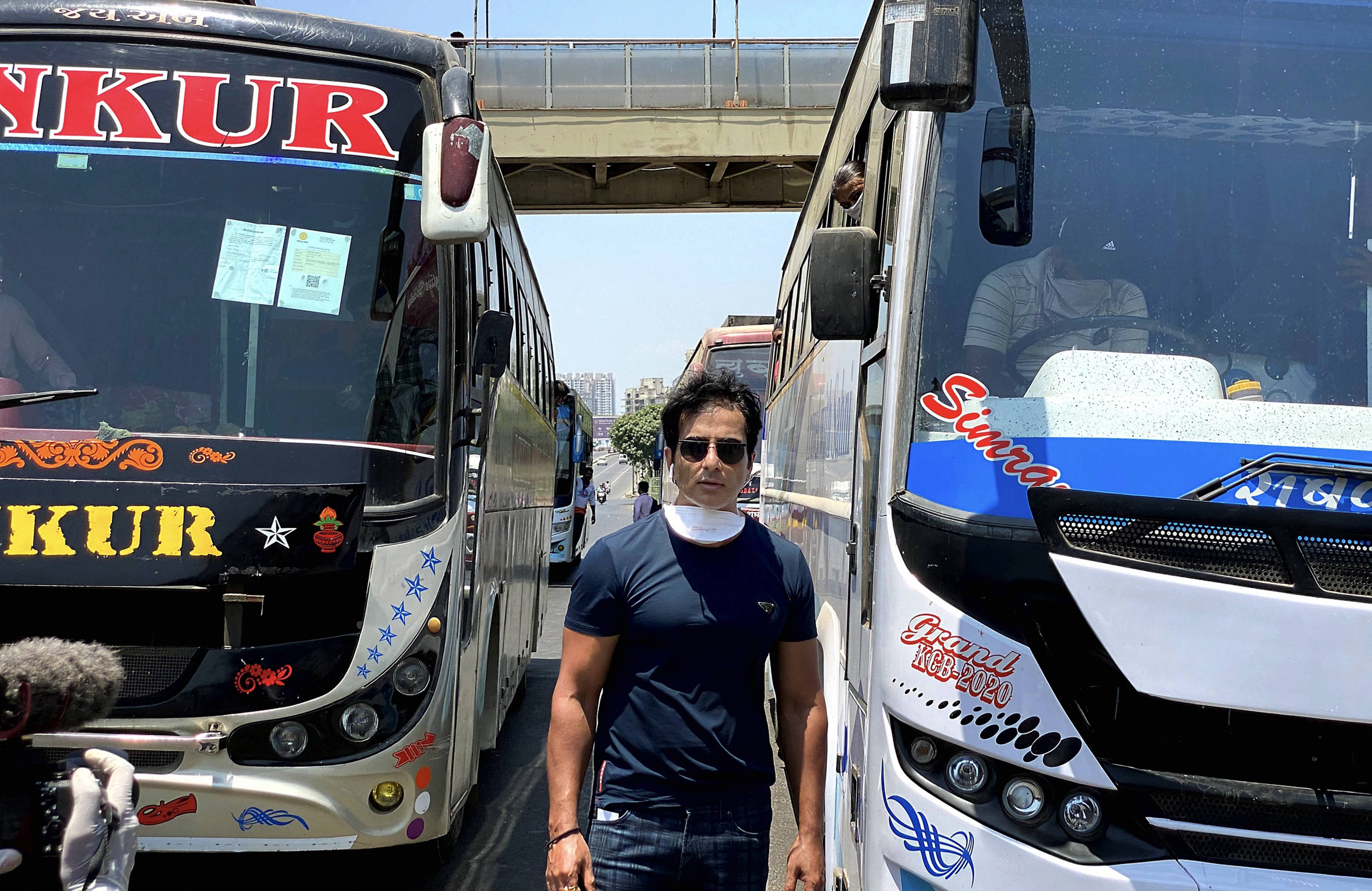Sir — It was heartening to read about the Bollywood actor, Sonu Sood, who has been arranging for buses for migrant workers to go home during the coronavirus pandemic. While such kindness ought to be expected of people with means, Sood belongs to an industry famous for its indifference to the real challenges plaguing Indian society and the plight that citizens often face. As such, to see a member of the Hindi film fraternity take such decisive steps to help the most beleaguered sections of society during the Covid-19 outbreak is unusual, and therefore heartwarming. Will his industry colleagues, many of whom hold immense wealth, follow his example?
Malvika Seth,
New Delhi
Hard times
Sir — The editorial, “Foggy lens” (May 19), was eye-opening. The Covid-19 pandemic and the consequent nationwide lockdown have once again raised the spectre of hunger and starvation, that too at a time when India’s granaries are overflowing on the back of a bumper harvest. A survey conducted by the Union health ministry has indicated gaps in the implementation of the National Food Security Act amid the shutdown.
Around 44 per cent of the respondents said they had reduced their daily food consumption or were even giving one meal a miss. In a series of measures that are part of the Rs 20 lakh crore economic package, the finance minister, Nirmala Sitharaman, tried to address the needs of these sections, apart from small farmers. But the government could have extended the public distribution system coverage — it has been under scrutiny on account of accusations of corruption — to include more people who are suffering from the loss of jobs and livelihoods, apart from migrant workers. As things stand, the poor and needy fall short of the substantive fiscal measures. India, which ranks 102 out of 117 countries on the global hunger index, is the only developing country to have imposed a 21-day lockdown without having first delivered any social security support for the poor. The Centre needs to do its duty to prevent starvation.
S.S. Paul,
Nadia
Sir — It was appalling to hear the Union commerce and industry minister, Piyush Goyal, claim that not a single Indian citizen had to go without food during the pandemic. Are the migrant workers who have starved to death not Indians in his eyes?
Sonia Singh,
Ludhiana
Teething trouble
Sir — After the coronavirus outbreak, many medical treatment procedures and important medical facilities have mostly been unavailable. These include physiotherapy and palliative care for post-radiotherapy patients. Those suffering from malignancy, haemophilia and thalassaemia are in a wretched condition. Dental treatment, too, has suffered a significant setback.
My dental college and hospital, which provides treatment to about 2,500-3,000 patients on a busy day, has been closed since the last week of March. Only the emergency department remains open with a minimal workforce. It treats patients suffering from mandible fractures as well as fractures sustained on account of trauma and road accidents, since these are considered medical emergencies. This is why people suffering from other problems such as toothache, bleeding gums and dental caries are having to look for private clinics.
Many private clinics, too, are closed on account of the pandemic. This is because the airotor handpieces and other ultra-sonic instruments used in dental treatments generate a large amount of aerosol during the procedure, which increases the chances for airborne infections. India provides some of the most affordable dental facilities in the world: Indians residing abroad often come here to get treated. Treatment, however, has become difficult in the present scenario. A single personal protective equipment piece costs around 400 rupees. As a result, it has become unsustainable for a dentist to carry out treatment at the usually reasonable fee structure. The government should look into the matter, so that dental treatment can continue at this time.
Aditya Ghosh,
Berhampore











